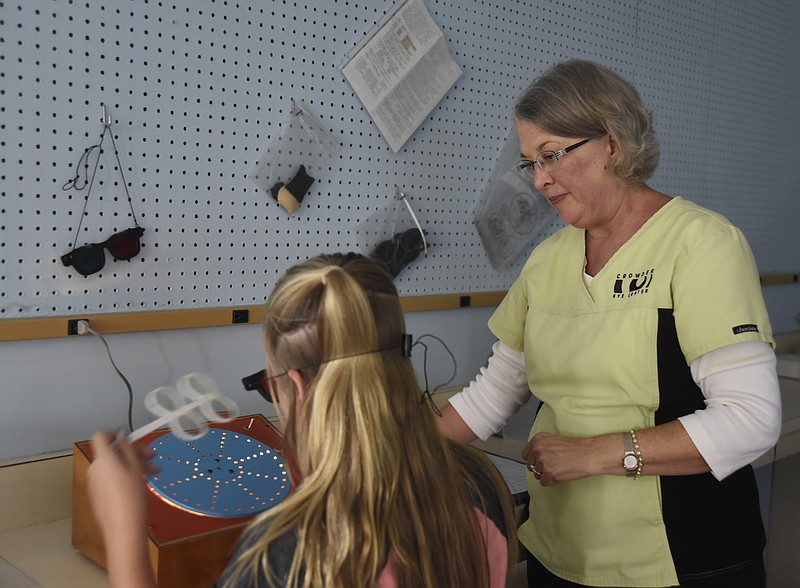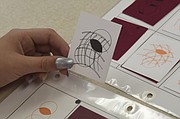Vision tips
The Lions Club is a service organization that provides services for people with hearing and vision problems. The local chapter’s website lists the following reasons for taking vision screening seriously:› 1 in 10 children is at risk from undiagnosed vision problems.› 1 in 30 children will be affected by amblyopia — often referred to as lazy eye, a leading cause of vision loss in people younger than 45 years.› 1 in 25 will develop strabismus — more commonly known as crossed eyes, a risk factor for amblyopia.› 1 in 33 will show significant error such as near-sightedness, far-sightedness and astigmatism.› 1 in 100 will exhibit evidence of eye disease such as glaucoma.› 1 in 20,000 children have retinoblastoma (eye cancer), the seventh most common pediatric cancer.
The school year just got underway and no doubt you filled out all the required paperwork, bought all the proper school supplies, got all of the proper shots for your child.
But did you have their eyes checked?
In the next few weeks, if you notice your student complaining of headaches at school or if your formerly all-A's child is suddenly struggling with schoolwork, it could be that he can't see well or has a tracking problem when reading. She could be skipping words - or even entire sentences - and not even be aware of it.
Parents can look for symptoms such as reversing words when the child is reading to them, or if he seems to tire or lose interest after just a few minutes, such problems could be a vision problem.
"If the child seems to fatigue more quickly than you think they should, or if after five minutes of reading they are looking for a bathroom or drink break, they could be struggling but don't really know why," says Dr. Joshua Crowder at the Crowder Eye Center in East Brainerd.
It is important to have your child's eyes checked in the first two years of their lives and certainly when they start school, he says.
"Yes, even infants," he says. "The American Optometric Association recommends an eye wellness check at 12 months."
Dr. Norman Elliott, who has offices downtown and in Hixson, says having a child's eyes checked early can not only reveal problems that should be addressed immediately, but the exam may detect indicators of later problems. It's important to identify the causes for vision problems and treat those and not just the symptoms, he says.
"When you put glasses on a child, sometimes you are just treating the symptom," he says.
In some cases, what the child needs are lenses that help ease the strain of seeing things like books up close. Such glasses ease the strain and help strengthen the eyes if used properly, Elliott says.
Most of us learn via our eyes and about "25 percent of children have an undiagnosed vision problem," Crowder says.
Too often, a young person's struggles at school are attributed to things like hyperactivity disorder or dyslexia, he says, when they could simply be eye-related issues.
Elliott adds that sometimes fixing the vision problem can help with attention issues.
Still, while eyeglasses or contacts can remedy some issues, there are times when the person has a tracking problem, he says.
"There are a lot of children out there that are having learning problems that are not ADHD or dyslexia-related," Elliott says. "Oftentimes it is a tracking problem where they skip over words or reverse words or even jump an entire sentence and now suddenly they are labeled as a low reader."
Both Crowder and Elliott offer vision therapy that does not involve surgery, drugs or even glasses or contacts for people with tracking issues. People identified with such problems are put on an exercise program that involves office visits and homework to improve the eye's muscles.
"They are like the muscles used to play guitar," Crowder says. "It takes practice."
It typically takes about 12 sessions to fully correct the problem, but many see results after the fifth or sixth session, he adds.
"I was a kid who failed first grade because of this," Crowder says. "It was never diagnosed and never treated. I just struggled all through."
Contact Barry Courter at bcourter@timesfree press.com or 423-757-6354.

